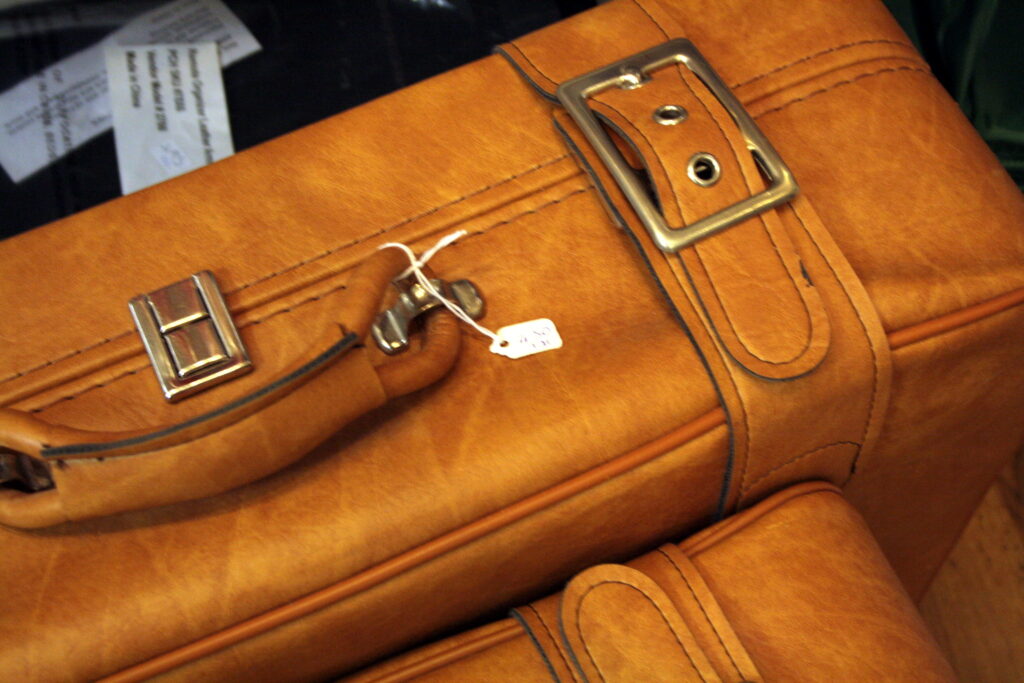by Elias Bailey
Above you, father, a video montage is displaying the most joyful and carefree moments of your life before we met. Wonderful images of you as a little boy playing with your siblings, wearing clothes you had yet to grow into while still showing the exact same mischievous smile we all know and love. I smile at the love felt through these photos, and I can finally picture the world you’ve described to me countless times as pictures of you in your military fatigues, holding your infant daughters flash through the screen. I can hear your laughter and feel your excitement. I look down and notice you are wearing that new grey suit mother insisted on getting you. Oh, how you hated ties, but you look so elegant!
My head swirls with images of our brief, yet transformative time together. I was a self centered teenager, when you started courting my mother. I remember coming home from school and meeting you as you were fixing her car. Instead of me being grateful and welcoming you, I was cold and just shy of rude towards you. I imagined I was being protective of my mother, as she had recently come out of a relationship where she was taken advantage. She raised me as a single mother before that was a respected thing while running her own business as a Chimney Sweep, “Mary Poppins Chimney Sweeps.” She carried every piece of equipment in her bright yellow van and did every aspect of this very physical job by herself until she could afford employees. She was tenacious and fierce, yet also beginning her physical decline. She had recently closed the business and I just didn’t want to see her hurt. You so kindly asked to speak with me privately and said, “I really care for your mother, and would like to see her with your blessing.” I gave you a big hug, but Inside I wanted to cry. I understood that you appreciated her, and I realized I had just come face to face with true integrity. I was thrilled when you moved in a couple months later.
The next year came with many changes, beginning with mother fracturing her ankle while the two of you were moving from Newport News to Richmond. As you and I spoke on the phone you said, “Don’t worry about your mother, you just concentrate on finishing high school. I’m going to take care of her, and wheel her into your graduation.” You did exactly that. You prepared every meal for her, and helped her bathe and dress. I was completely dumbfounded when as mother was starting to walk again, she called me to tell me about your accident.
“Honey, Carroll has had a terrible accident.”
“ WHAT?!”
“ He’s been hit in the back of the head with a gun, because he didn’t want to give a kid his wallet.”
“ Mom, is he ok?”
“He’s ok, but he has some numbness in his neck and legs, and I’m very worried.”
“Don’t worry, mom, he’ll be ok, he’s tough as nails.”
My juvenile mind wouldn’t consider any other thoughts, or possibilities other than complete recovery. I didn’t take this seriously, and in fact was only thinking about going to the beach with my friends.
When mother called me up a few days later to ask me to pick you up from the small town hospital near your parents, I didn’t really think much about it as I began making the hour-long trip along the James River, basking in the sights and smells of birds and trees with grasshoppers chirping so loudly it overpowered the car engine. Upon reaching the hospital I was a bit surprised to see you slumped over in a wheelchair with disheveled hair. I wasn’t immediately concerned as I walked towards you through perfectly manicured grounds of dogwood trees and flowers coupled with the smell of freshly cut grass only to reach you and become consumed by the smell of urine and body odor.
I was so upset that you were left here alone in this state of neglect and was ready to go complain, when you very calmly said, “It’s not worth it because they don’t believe me. We need to leave.”
I was in shock, but did as you requested and upon reaching my tiny 1990 Ford Tempo realized that you were completely paralyzed, and I had no idea how to transfer you out of the small wheelchair.
You very calmly instructed me, “Try laying the seat back, and then grab me under my arms and put my head in. Save my feet for last.”
I was amazed that it worked and that we were on our way towards The Medical College of Virginia where you could receive proper care.
“ Are you in pain?” Do you think they can perform surgery or something?” I asked.
You replied calmly, “I’m not in any pain, but it’s frustrating.I think they’ll be able to help me at MCV. I’m just glad to be out of that place where they thought I was faking.”
Shortly after our arrival at MCV hospital, a team of specialists approached the car with a wheelchair and a giant wooden board. They transferred you as if it were a well choreographed dance routine carried out by the most skilled professionals. It was reassuring to realize you would be receiving excellent medical care. As I left the hospital, I became aware of the movement of my legs for the first time.
I never imagined you would have remained quadriplegic for the remainder of your life, or that mother would transition so gradually and lovingly into her role as your caretaker or that she would cease to think of herself in any other capacity. When you left this world she felt purposeless. Mother’s heartbreak led her to join you almost 3 months to the day of your passing. Mollie and Carroll, your love is everlasting. Mother and father, your teachings and love are forever beside me, inseparable.
Elias Bailey served as co-editor in chief for The Lit in 2022. He is a four-time Grammy nominated jazz bassist who has been pursuing a Journalism major at LAGCC since March 2021.
Image credit: “Tree,” roberto vagner melo. Flickr. CC BY-NC-ND 2.0.





